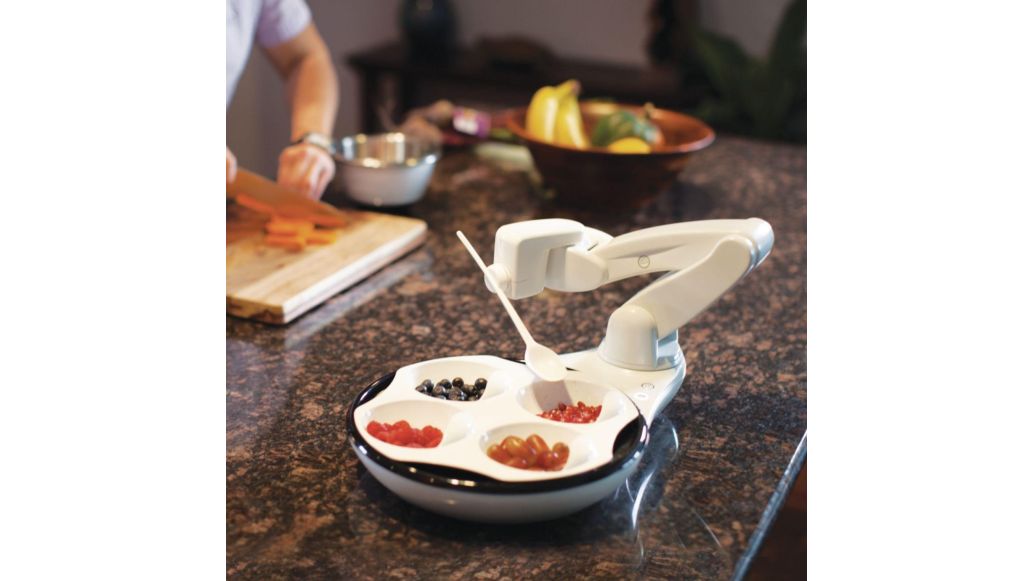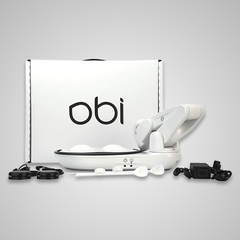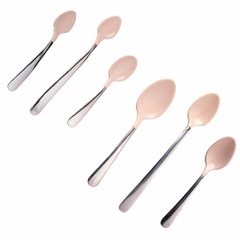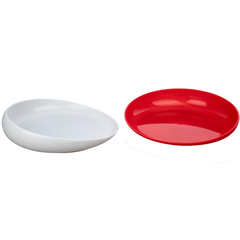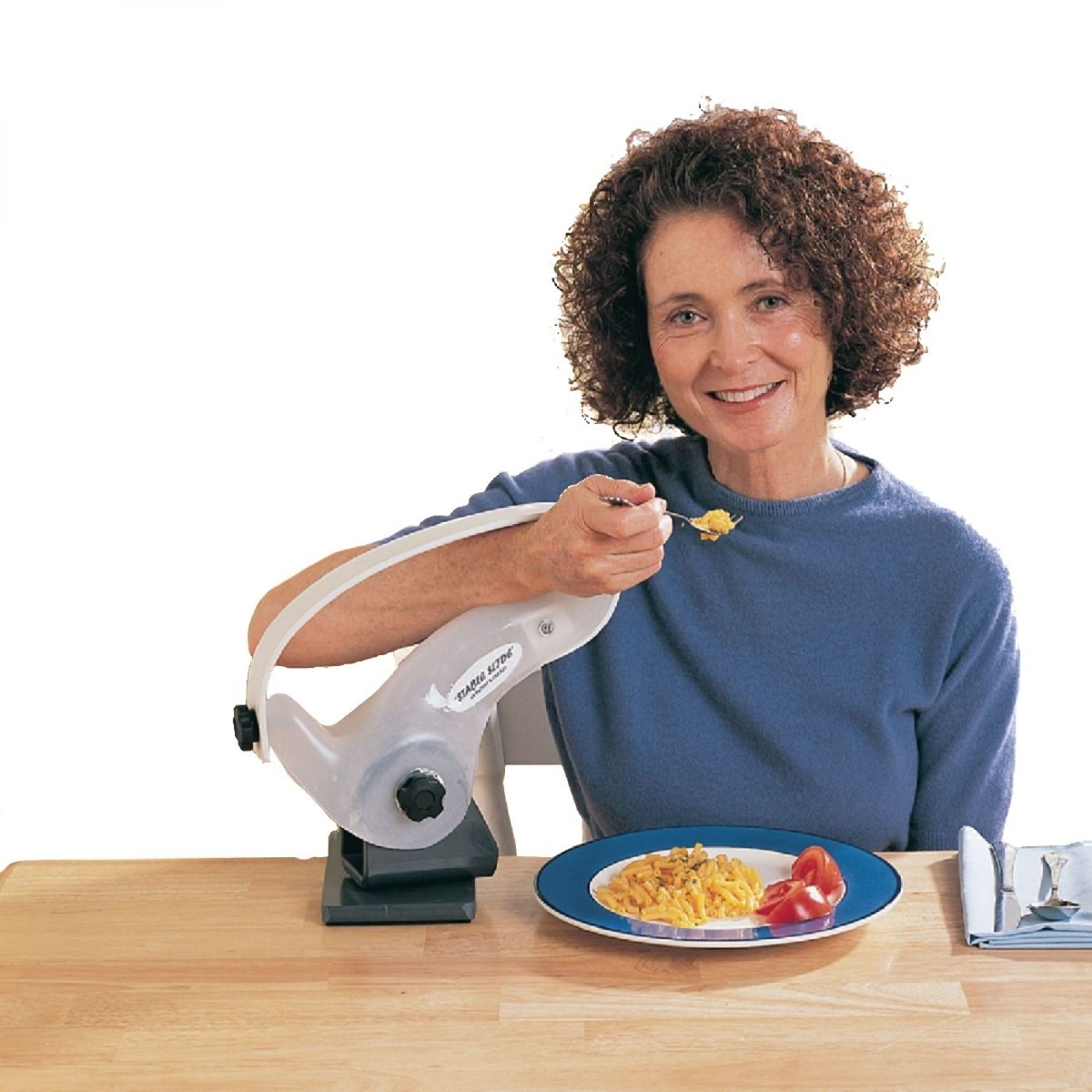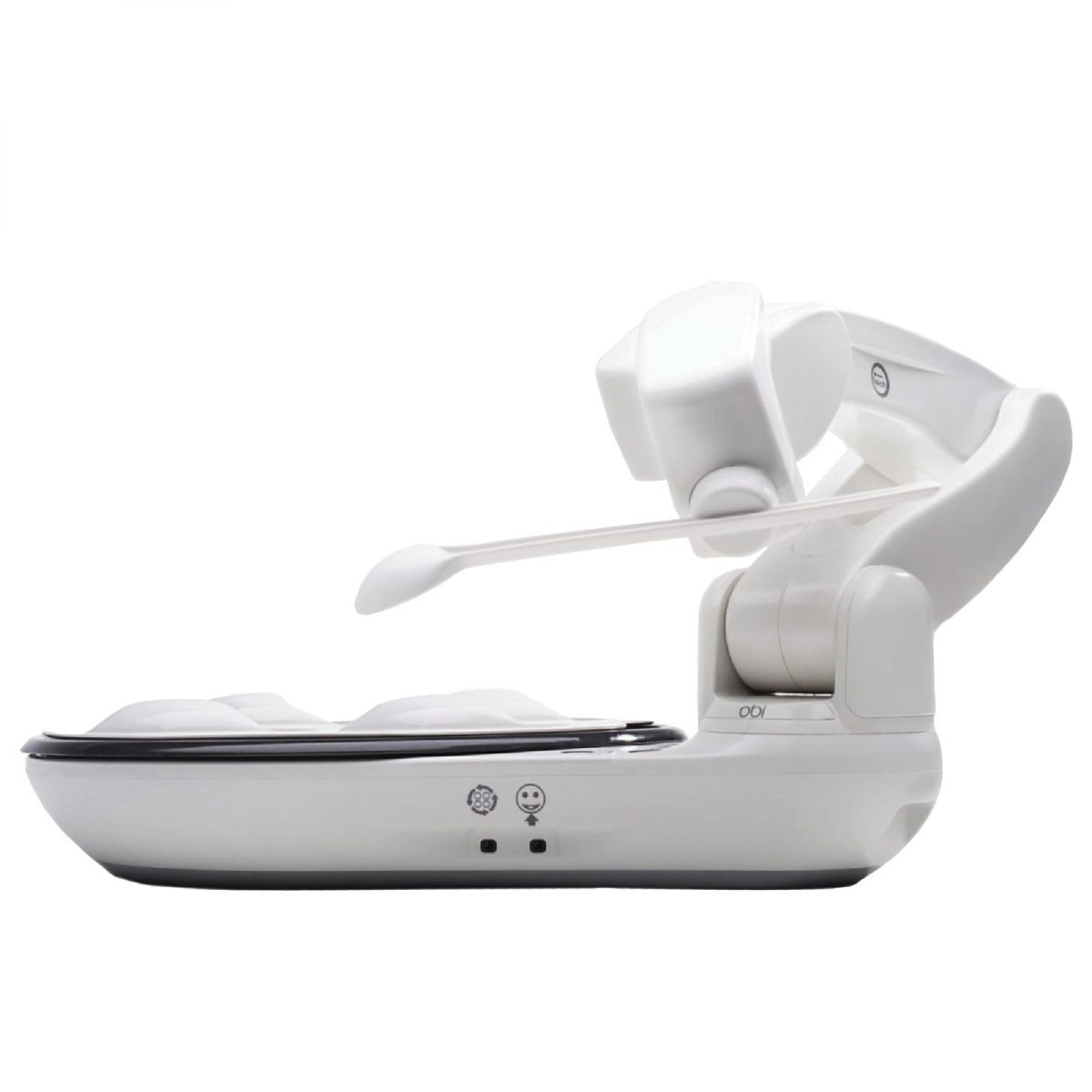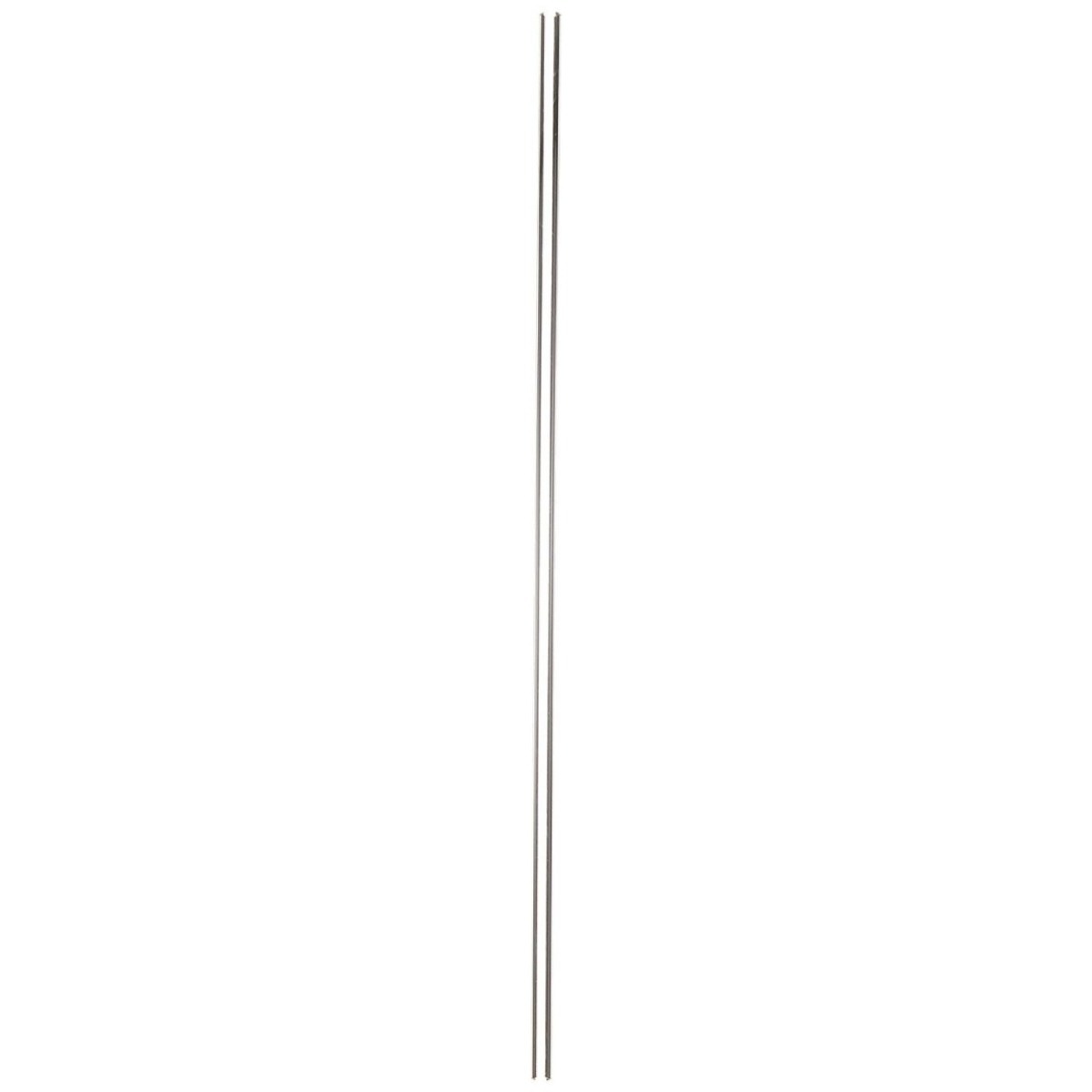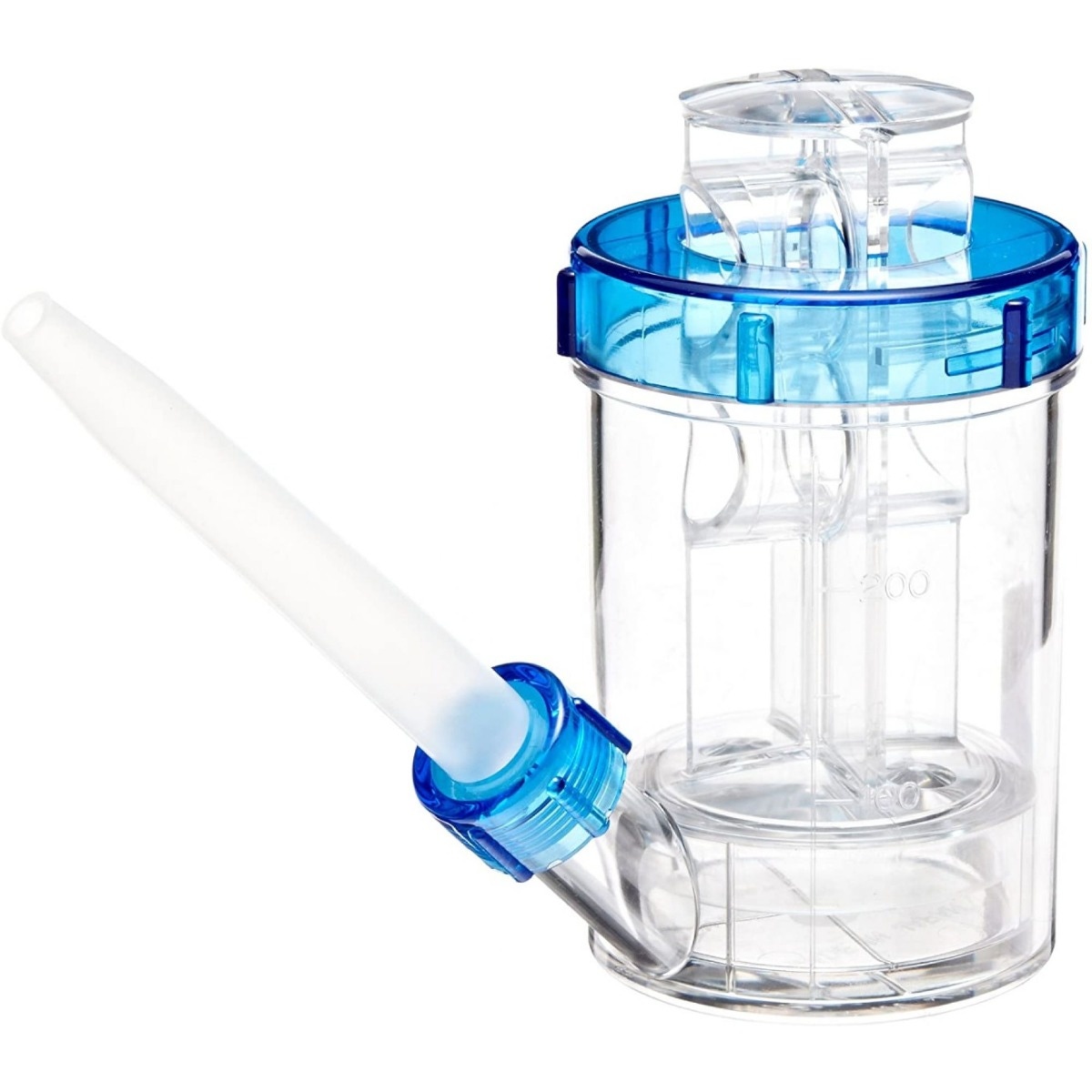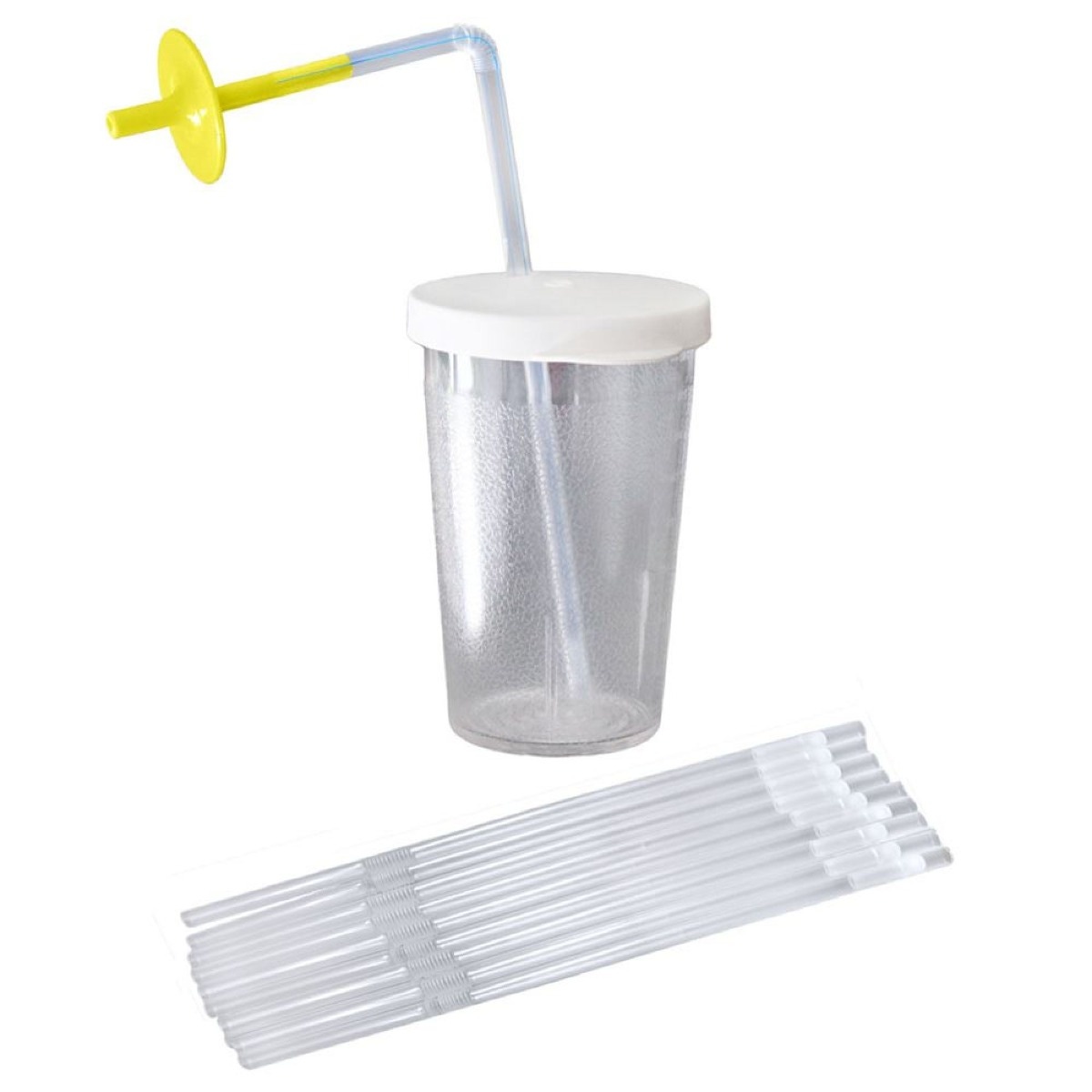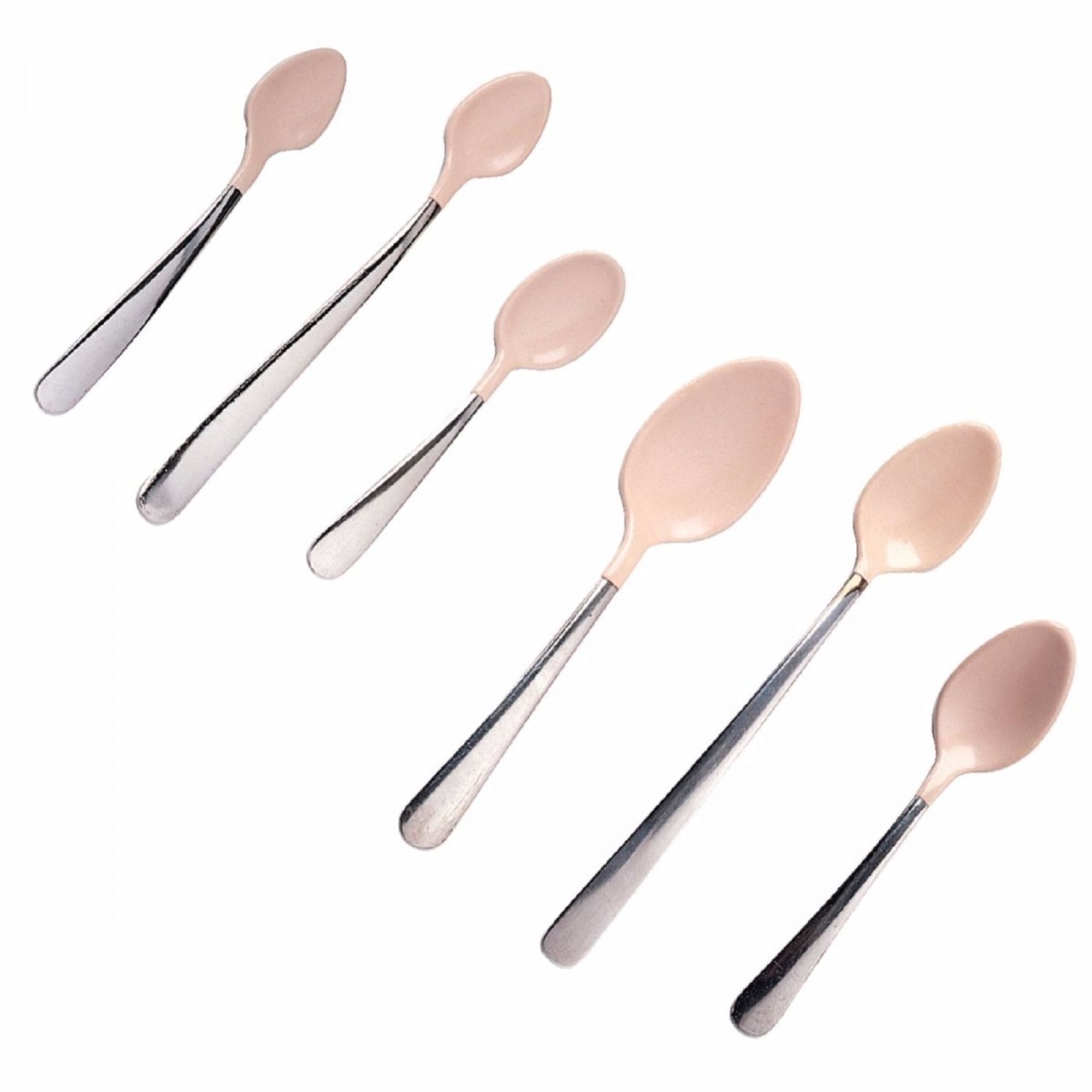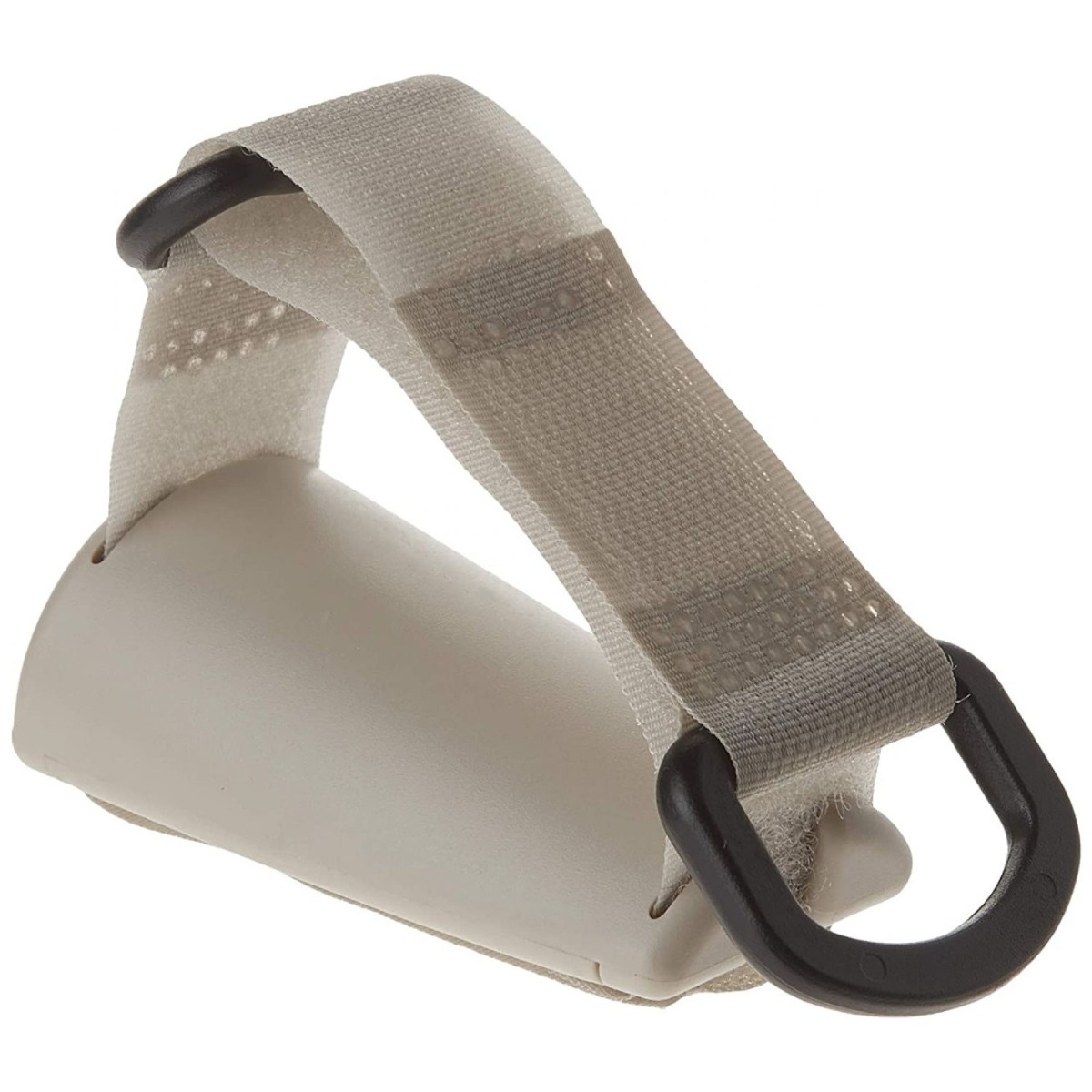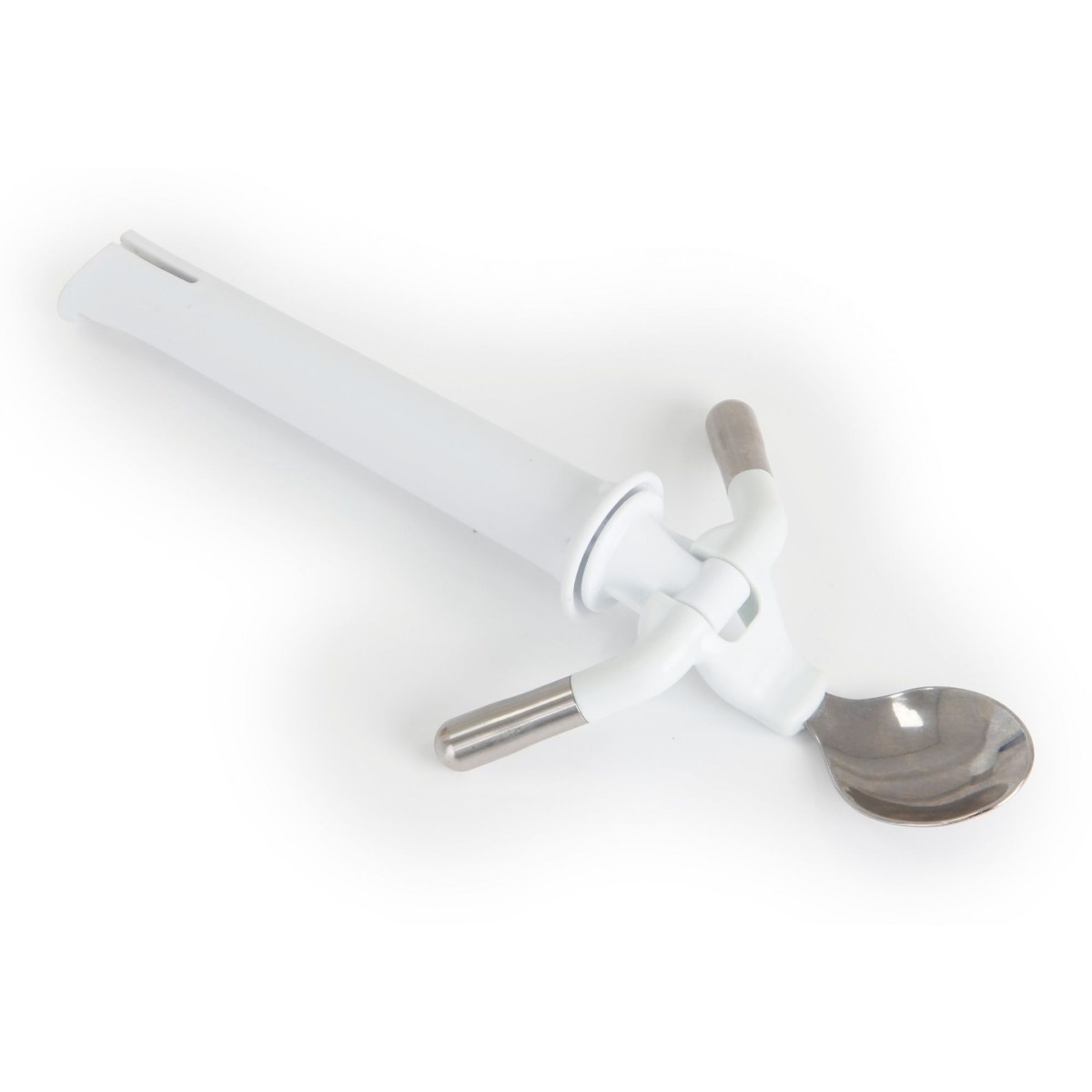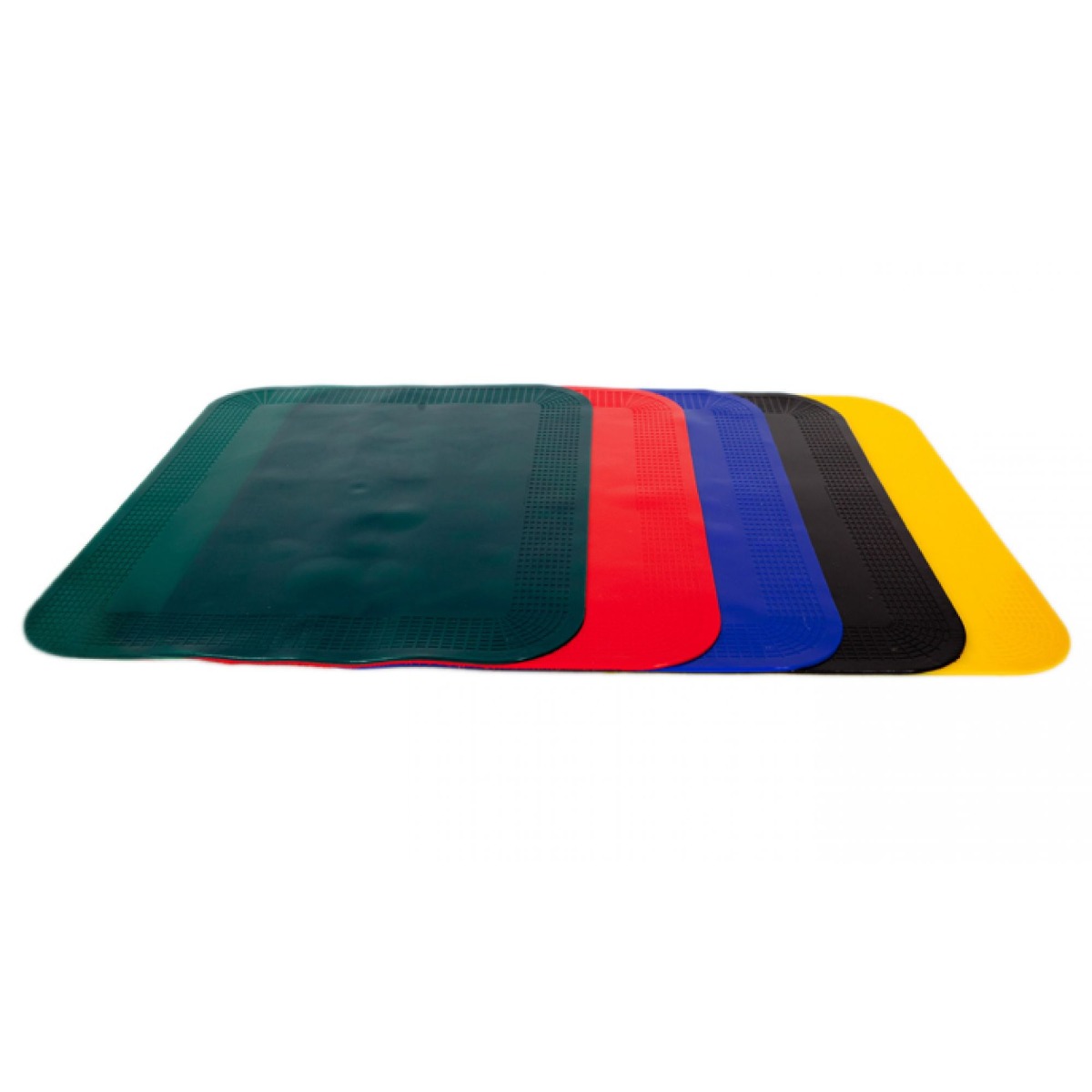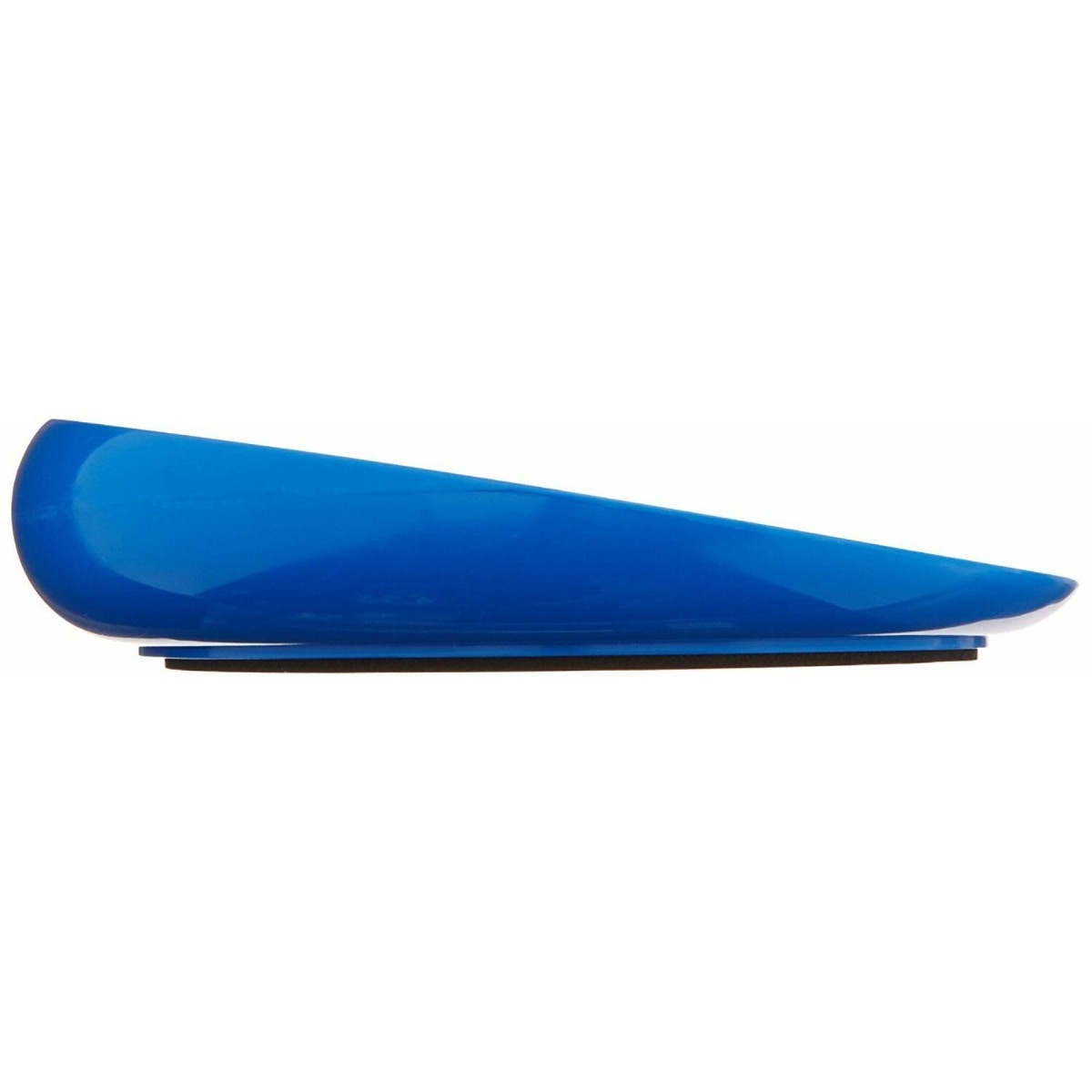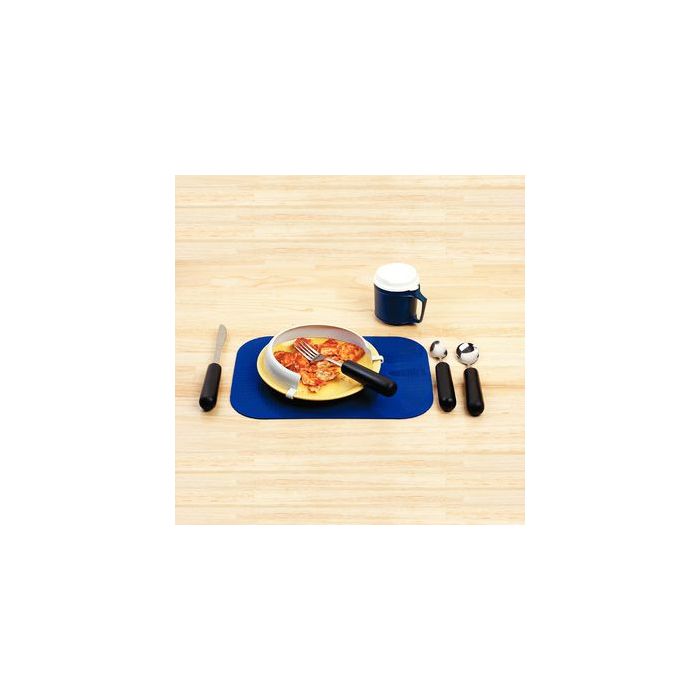Key Takeaways
- While an individual’s cerebral palsy will not decline as they get older, there are a few things that can impact their overall health and wellbeing
- Uncontrolled or unpredictable hand movements and muscle weakness can make mealtime seem impossible
- Robotic self-feeders and adaptive eating utensils can help guide food to the mouth without causing spills
- To aid users with difficulty swallowing food and/or fluids, use drinking cups designed to control the liquid flow rate
Top Products in This Article
Meals for those who have cerebral palsy, regardless of how severe the disorder is, can last much longer than the average mealtime. It can be difficult for adults with cerebral palsy (CP) to eat or drink if they have trouble controlling their hands. Fortunately, dining aids like weighted utensils and robotic feeders can help adults with CP go on to lead an independent life.
We’ve rounded up 12 dining aids to help increase user independence during mealtime!
- How does cerebral palsy effect mealtime?
- What products can help make mealtime easier?
- More products to prevent food spillage
How does cerebral palsy effect mealtime?
Cerebral palsy can affect the muscles that open and close the mouth and move the lips and tongue. People with cerebral palsy may have difficulties chewing and swallowing food and drink – a condition known as dysphagia. Others may suffer from gastroesophageal reflux. This is when acid from the stomach rises into the esophagus, which makes eating uncomfortable or painful.
Cerebral palsy is a condition that directly impacts one’s movement and flexibility. This may cause uncontrolled or unpredictable movements and muscle weakness. Because cerebral palsy often impacts fine motor skills, many people have difficulty using utensils, holding a cup, or transferring food from a plate to their mouth using their hands.
What products can help make mealtime easier?
Self-Feeding Aids
The Stable Slide guides your arm as you move it from the plate to your mouth. Simply rest your forearm on the slide for support as you gather food onto your utensil. Easily clamping to the table, this self-feeding support offers tactile biofeedback which helps reduce tremors and increases your control.
Obi enables adults with CP to independently feed themselves in a fun and elegant manner. At the click of a switch, it allows users to select between four compartments of food. Avoiding unwanted drips and splashes, the robotic feeder offers users the freedom to eat at their own pace and the ability to interact with others while dining.
Here is a demo of the Obi Robotic Self-Feeder for further assistance!
Drinking Aids
Typically, a person with dysphagia has trouble swallowing food and/or fluids. The People Feeder is designed to control the liquid flow rate. Gently squeezing the silicone nozzle, the feeding cup holds up to 8-ounces of thick or pureed food. The Sip-Tip valve helps straws to stay full of fluid, reducing the amount of air ingested and effort required. The 8-ounce spill resistant tumbler has a graduated scale to monitor intake.
For cups you already own, try using a reusable drinking straw! The adjustable properties of these straws help those who have difficulties with fine motor skills and are at-risk of choking while drinking solid food or sipping from a cup. This hands-free drinking aid ensures easy reach and access to even the largest bottles, cups, and bowls without losing suction.
Eating Utensils
Adaptive eating utensils are designed to assist individuals who have trouble feeding themselves with standard cutlery. To help stabilize uncontrollable movements, weighted utensils have a non-slip built-up handle to improve grip. The added weight offers more control so that the utensil reaches the mouth without spilling any food. Do you have a sensitive mouth? The Plastisol-Coated Spoons are designed to protect your teeth and prevent minor injuries to your gums and lips.
The ELISpoon features stabilizing technology that counterbalances the food weight and controls the effect of the user’s hand movements. Rotating 360°, the innovative design prevents food spillage and keeps the spoon level regardless of how the arm twists, bends, or moves. To ensure a better grip, attach a utensil holder to the ELISpoon during your meal.
Here is a demo of the ELISpoon for further assistance!
More Products to Prevent Food Spillage
Ideal for one-handed users, Dycem Non-Slip Pads hold a variety of objects in place like mixing bowls, plates, glasses, and more. Simply place the grip enhanced pad on the table and secure your food preparation items in place or use on a tray to keep food items secure. For additional support during mealtime, try a weighted dining kit! The weighted cutlery and cups aid involuntary tremors, and the plate guard provides a barrier when scooping your food.
Adaptive plates, like the Round Scoop Dish, is designed with a high curved back and molded-low front to aid the leverage of food onto an eating utensil. Using a fork or spoon, easily trap and scoop food against the high wall.
Spastic reflexes, as well as issues with strength, range of motion, and dexterity can make it difficult to eat and drink independently. Fortunately, products like weighted eating utensils, feeding cups, and robotic feeders can help make it easier for adults with cerebral palsy to feed themselves.
References:
1. Holland, Kimberly. (2018). Living as an Adult with Cerebral Palsy. Healthline. Retrieved from https://bit.ly/3mDYjbo
2. Anonymous. (2012). Feeding and Nutrition Interventions in Cerebral Palsy. Agency for Healthcare Research and Quality. Retrieved from https://bit.ly/2PXy1F5
Medical Disclaimer: The information provided on this site, including text, graphics, images and other material, are for informational purposes only and are not intended to substitute for professional medical advice, diagnosis or treatment. Always seek the advice of your physician or other healthcare professional with any questions or concerns you may have regarding your condition.

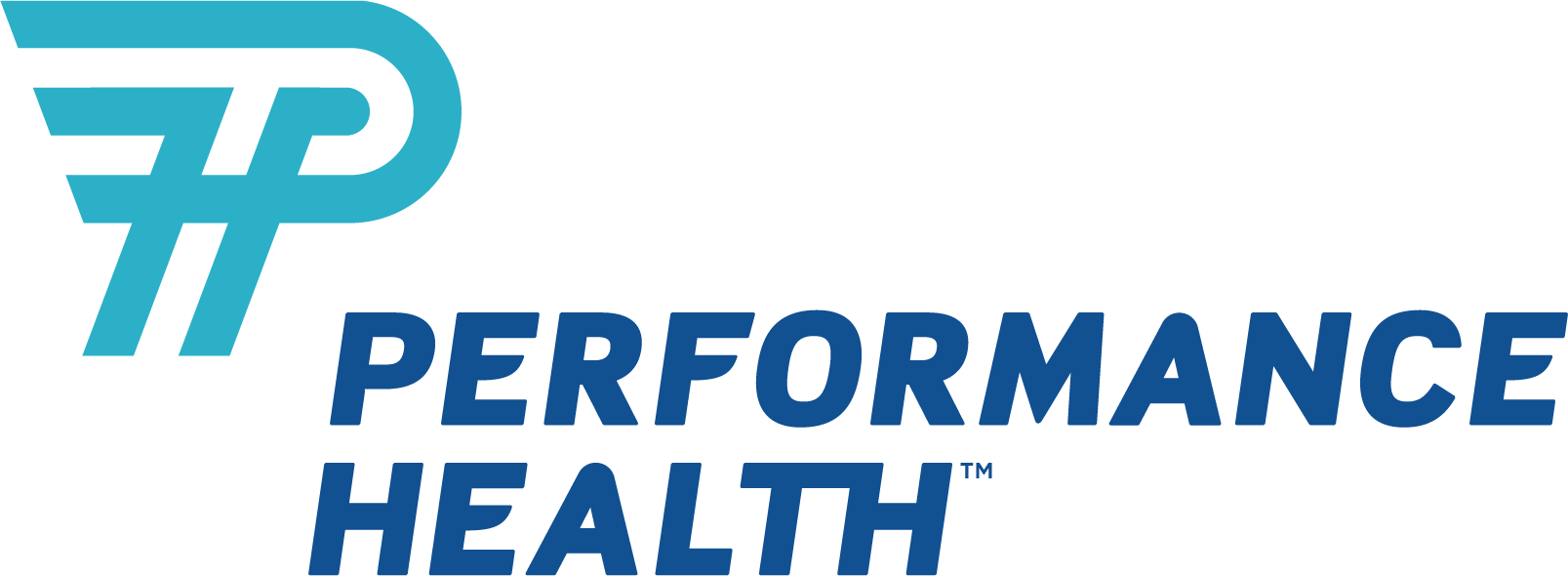






 France
France Australia
Australia